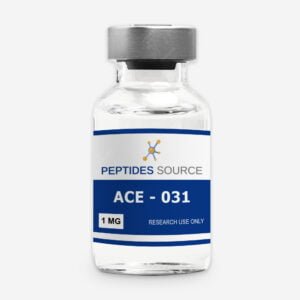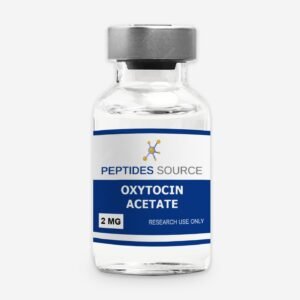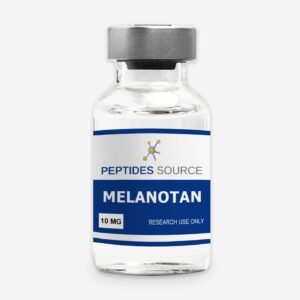KissPeptin 5mg
$30.00 - $45.00
You save
- Physical profile: Lyophilized powder
- This product is sold as a research chemical and not for human or animal consumption. For laboratory use by qualified professionals.
Availability: Ships today if ordered and paid by 12 PM EST. (Except Saturdays & Sundays)
Product Usage
This PRODUCT IS INTENDED AS A RESEARCH CHEMICAL ONLY. This designation allows the use of research chemicals strictly for in vitro testing and laboratory experimentation only. All product information available on this website is for educational purposes only. Bodily introduction of any kind into humans or animals is strictly forbidden by law. This product should only be handled by licensed, qualified professionals. This product is not a drug, food, or cosmetic and may not be misbranded, misused or mislabled as a drug, food or cosmetic.
Kisspeptin-10 is a peptide that plays a crucial role in regulating reproductive hormones and the hypothalamic-pituitary-gonadal (HPG) axis. It’s derived from the larger kisspeptin protein family, which is known for its ability to stimulate the release of gonadotropin-releasing hormone (GnRH).
100mcg/ml subcutaneous injection provided in a 5ml vial.
“Kisspeptin-10 Is a Potent Stimulator of LH and Increases Pulse Frequency in Men Intravenous bolus kisspeptin-10 resulted in a rapid and secretion, but a lower dose infusion of kisspeptin-10 (1.5 dose-dependent rise in serum LH concentration, with Hg/kg • h) increased mean LH from 5.2 $ 0.8 to 14.1 $ 1.7 maximal stimulation at 1 Mg/kg (4.1 $ 0.4 to 12.4 IU/liter (n = 4; P < 0.01) and increased LH pulse frequency + 1.7 IU/liter at 30 min, P < 0.001, n = 6). Administration from 0.7 + 0.1 to 1.0 ÷ 0.2 pulses/h (P < 0.05) and secreof 3 g/kg elicited a reduced response vs. 1 Mg/kg (P< tory burst mass from 3.9 + 0.4 to 12.8 + 2.6 IU/liter (P < 0.05). Infusion of kisspeptin-10 at 4 Mg/kg • h for 22.5 h 0.05). Kisspeptin-10 boluses potently evoke L secretion elicited an increase in LH from a mean of 5.4 + 0.7 to 20.8 in men, and continuous infusion increases testosterone, LH ÷ 4.9 IU/liter (n = 4: P < 0.05) and serum testosterone pulse frequency, and pulse size. Kisspeptin analogues have increased from 16.6 $ 2.4 to 24.0 $ 2.5 mol/liter (P < therapeutic potential as regulators of LH and thus 0.001). LH pulses were obscured at this high rate of restostcrone scerction. George, J Tet al. ""Kisspeptin-10 is a potent stimulator of L.H and increases pulse frequency in men."" The Journal of clinical endocrinology and metabolism vol. 96,8 (2011): E1228-36. doi:10.1210/jc.2011-0089"




